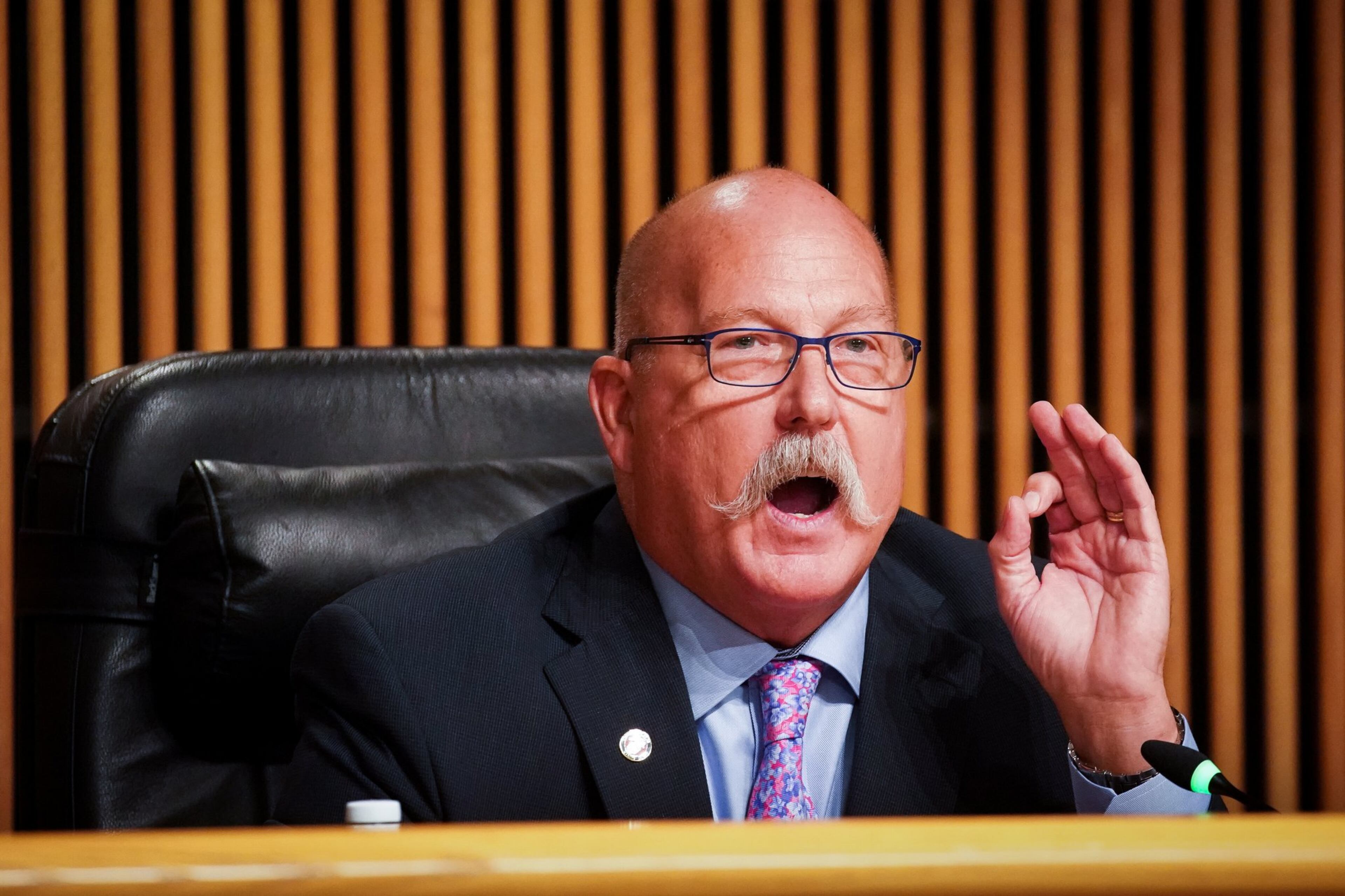Gwinnett commissioner responds to ethics complaint, defends actions

Gwinnett Commissioner Marlene Fosque has responded to the ethics complaint against her, arguing that her comments about an anti-illegal immigration activist did not amount to defamation or a violation of any county ordinances.
The complaint against Fosque was filed in August by D.A. King, the controversial founder of a group called the Dustin Inman Society. A month earlier, King had participated in a forum that Fosque organized to discuss the Gwinnett sheriff's participation in a federal immigration enforcement program known as 287(g).
Fosque later decried Sheriff Butch Conway’s decision to invite King to the panel and denounced King as “someone known for spewing hatred and bigotry and racism.” During her comments, which came during a public commission meeting, Fosque also referenced the Southern Poverty Law Center’s designation of the Dustin Inman Society as an anti-immigrant hate group.
King's subsequent ethics complaint accuses Fosque of defamation and of violating six tenets of Gwinnett's ethics ordinance.
Fosque, a Democrat in her first year in office, has not previously commented on the complaint. But in the formal response submitted Wednesday to the ethics board investigating the complaint, Fosque’s attorney defended the commissioner’s actions.
The eight-page filing from attorney Steve Reilly argues that Fosque was exercising free speech and that King is a public figure, meaning that he must prove Fosque’s comments were made with “reckless disregard for the truth.”
“Mr. King’s own personal feelings of annoyance or personal offense taken by him are not actionable under the Gwinnett County ordinance,” Reilly wrote.

Gwinnett’s ethics ordinance was created in 2011 and is primarily aimed at preventing corruption and conflicts of interest. But it also includes more general guidelines about the behavior of public officials and employees, which King’s complaint focused on.
Government ethics experts have questioned whether such guidelines belong in ethics ordinances, saying they're too vague and subjective to be properly enforced.
The ethics board assembled to investigate Fosque held its first meeting in October and will meet for an evidentiary hearing — a key point in the process — on Dec. 19.
The board could reach a decision on the complaint and any potential punishment for Fosque shortly after the meeting.
The ethics board would then pass its recommendation on to Fosque’s colleagues on the Board of Commissioners, with whom the final decision rests.
The stiffest punishment Fosque could receive is a public reprimand.
More ethics news
Gwinnett Commissioner Tommy Hunter was the target of the only other formal complaint filed under the county’s ethics ordinance.
Hunter received a public reprimand in 2017, a few months after penning now-infamous Facebook posts calling civil rights icon and U.S. Rep. John Lewis a “racist pig” and referring to Democrats as “Demonrats” and a “bunch of idiots.”
Hunter, a Republican, is still challenging the reprimand via a lawsuit that argues Gwinnett’s ethics board is unconstitutional.
In September, the Georgia Court of Appeals declined to overturn a Gwinnett court’s dismissal of the suit. Hunter’s attorney, Dwight Thomas, has now asked the Georgia Supreme Court to review the case.
Hunter and Thomas have also filed a separate lawsuit against Gwinnett County, asking for $5 million in damages.



